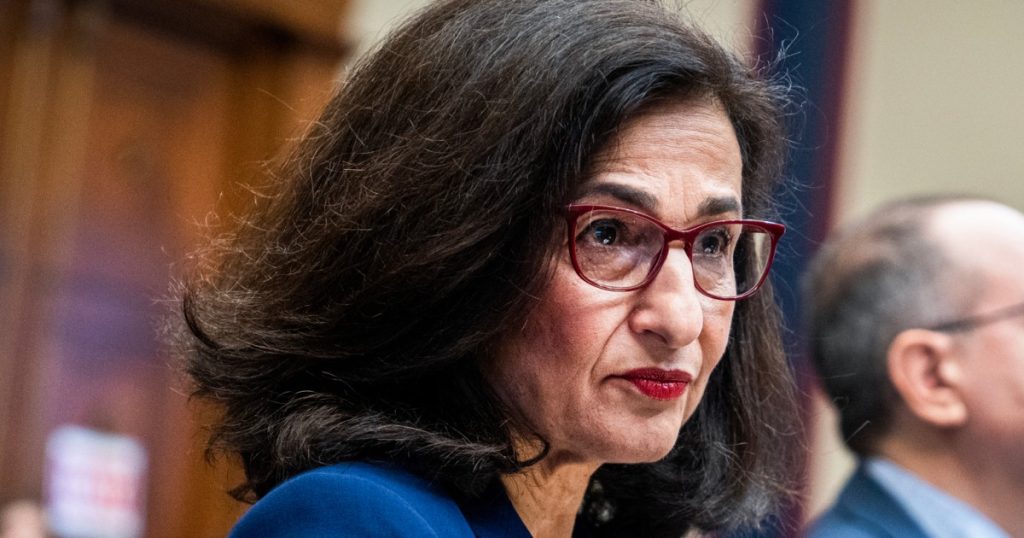The president of Columbia University, Nemat Shafik, announced her resignation after facing months of criticism over protests on the Manhattan campus regarding the war in Gaza. She had been criticized by anti-war protesters as well as House Republicans in Congress for different reasons. In her letter to the Columbia community, Shafik stated that during her tenure, progress had been made in several important areas. However, she acknowledged that the period had been marked by turmoil and divergent views within the community, taking a considerable toll on her family and others.
In response to protests on campus, Shafik had asked the New York City Police Department to clear encampments set up by demonstrators as an act of solidarity with Palestinians. After the first encampment was cleared, a second one emerged at Hamilton Hall, which also had to be cleared by the NYPD at the university’s request. Furthermore, Shafik faced questions about her handling of antisemitism on campus during an appearance before a House committee in April. Her resignation, effective immediately, was described as a decision made to enable Columbia to navigate the challenges ahead with new leadership in place before the start of the new term.
The Board of Trustees at Columbia University accepted Shafik’s resignation and named Katrina Armstrong, CEO of the Columbia University Irving Medical Center, as the interim president. Armstrong expressed optimism and resolve in moving forward, emphasizing the importance of renewing the university’s vision and strengthening the community. The student group Columbia Students for Justice in Palestine celebrated Shafik’s resignation, noting their demand for divestment and the consequences faced by leaders who do not heed student demands.
Protests erupted at college campuses across the country in response to the terror attacks by Hamas against Israeli civilians and the subsequent war in Gaza. Calls for schools to divest from financial support of Israel were widespread, including at Columbia University. In her resignation letter, Shafik reiterated the importance of values such as free speech, openness to new ideas, and zero tolerance for discrimination, which she believes are central to Columbia’s identity. Despite the challenges and disruptions faced on campus, Shafik expressed a commitment to upholding academic principles and treating everyone with fairness and compassion.
University presidents, including Liz Magill of the University of Pennsylvania and Claudine Gay of Harvard University, have faced criticism and resigned following pressure from Republican lawmakers and others regarding campus demonstrations and perceived antisemitism. Shafik’s resignation is part of a broader trend where university leaders are being called into question for their handling of protests and controversial issues on campus. The impact of political pressures and societal divisions on higher education institutions is a prominent issue that has led to leadership changes and heightened scrutiny.


